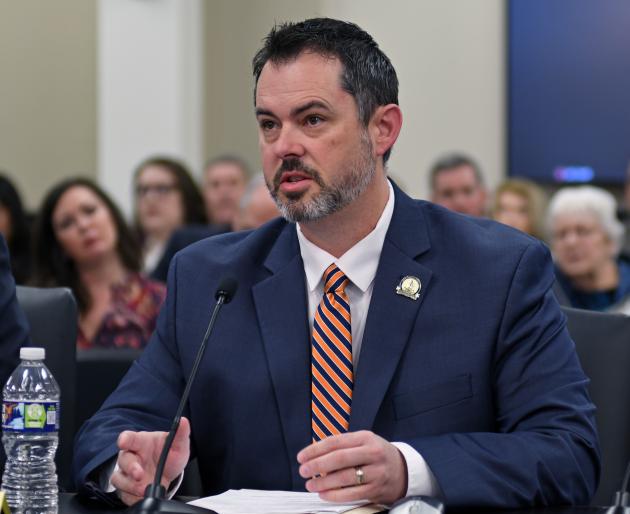Legislation calls for equal treatment of religious organizations in emergencies
FRANKFORT — A measure that would prevent houses of worship from being singled out for closure during a state of emergency received approval Thursday from the Senate State and Local Government Committee.
The bill’s sponsor, Rep. Shane Baker, R-Somerset, told committee members that the bill is in response to the shutdown of churches and other religious organizations in 2020.
“The bill does a couple of simple things,” he said. “No. 1, it says that churches and religious organizations should be treated in the same manner as other essential organizations during times of emergency.”
The bill would also prevent the state from taking adverse action against a religious organization simply for being religious. Additionally, it would codify recent Supreme Court decisions, which make clear that free exercise rights are fundamental, and that governments can’t treat religious organizations more adversely than other groups, Baker said.
The bill also allows religious organizations to bring a lawsuit if they have been discriminated against, he said.
David Walls, executive director of The Family Foundation, offered supportive comments on the bill.
“It’s vitally important that we ensure that churches and other religious organizations receive at least equal treatment during an emergency, and that the state is not allowed to discriminate against them on the basis of them being a religious organization,” he said.
Sen. Christian McDaniel, R-Taylor Mill, voted for the measure, but expressed concerns about unintended consequences.
“You’re opening up for interpretation with this what is actually constituted as religious expression and a right of action against the state that currently exists, and I think that we may be opening ourselves up to some unintended consequences that have not been thought through very well with this,” he said.
The measure was approved with a 10-1 vote. It now heads to the Senate floor for consideration.



























